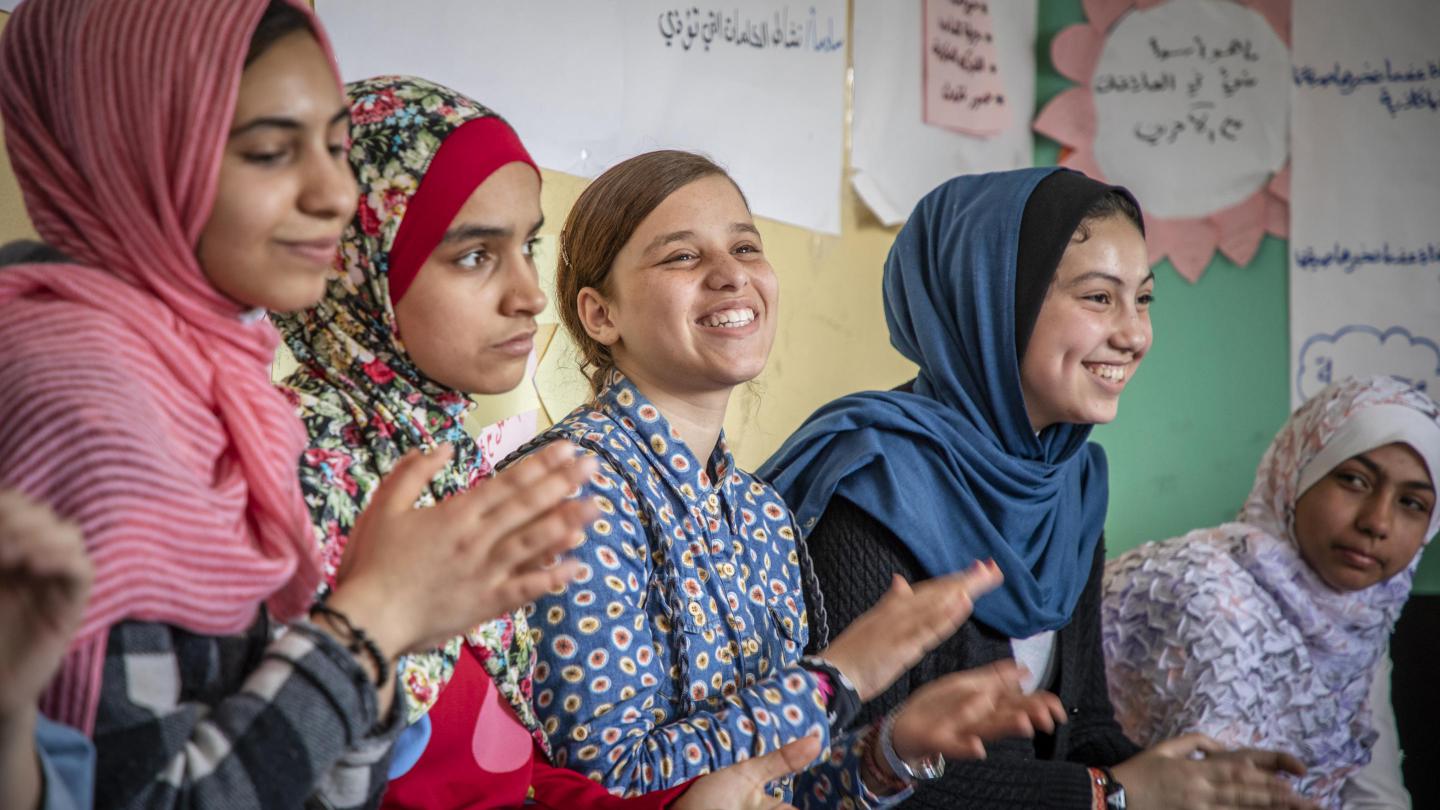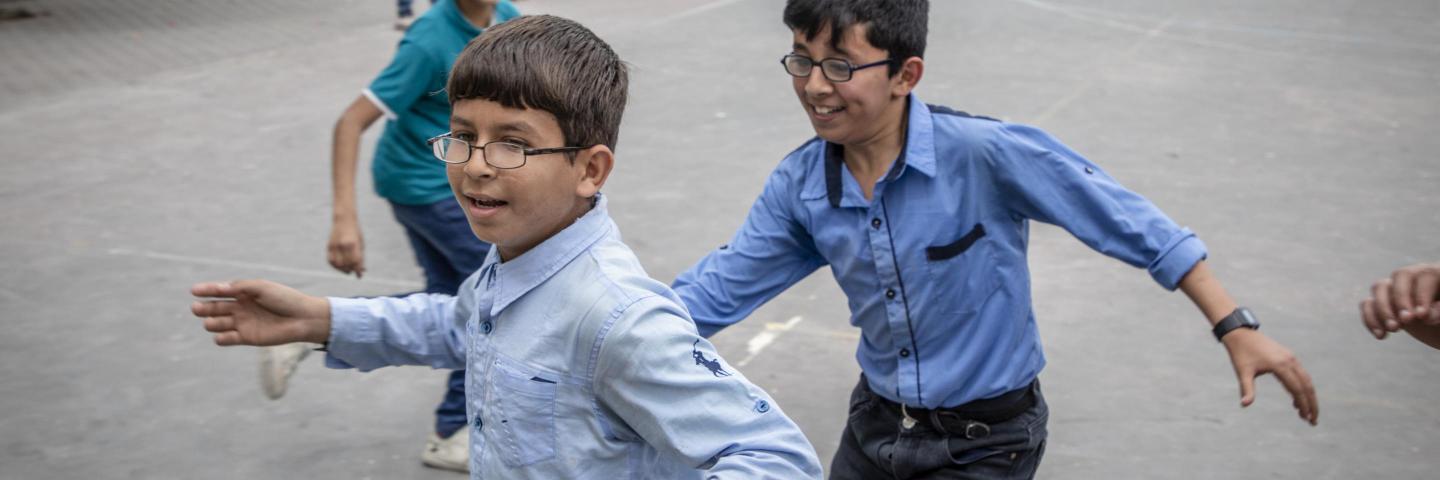
The majority of the Palestinian population living in the occupied Palestinian territory (oPt) are children and youth. Decades of conflict and the ongoing military occupation and blockade of Gaza hinder the right to self-determination and consequently, has adverse impacts on the development of Palestinian communities, greatly increasing the vulnerability of children, particularly children most impacted by inequality and discrimination. Palestinian children and their families continue to live in an environment characterized by violence, poverty and insecurity. According to the UN, there are 2.1 million Palestinians in the occupied Palestinian territory (oPt) who are in need of humanitarian aid, almost half of which are children.
Although there has been some progress towards achieving children’s rights in the oPt, 2.31 million children continue to suffer from the impact of occupation and intra-Palestinian division. Children with disabilities often face additional challenges due to the barriers they face to access services and are often stigmatised and discriminated against.
In the West Bank, restrictions on movement and access, home demolitions and forced displacement have a significant impact on children’s lives. Challenges to life, security, and human dignity are realities for children living in highly vulnerable areas.
In Gaza, the long term impacts of five military escalations on Gaza while under an ongoing blockade of over 15 years, exposes children to violence and constant deprivation in their daily lives and affects girls and boys in a multitude of ways. Severe restrictions on movement in all areas of the country and continuing political instability have reduced the ability of families to cope and significantly weakened their access to services, including health care, mental health, and education services.
This has also compounded the effects of climate change on the Palestinian environment and population. Palestinians, especially children, under occupation suffer the effects of climate change more severely. The central climate change impacts that affect Palestinians include decreased precipitation, significant warming, more frequent extreme weather events, a rise in sea levels and a reduction in potable water. In the long run, these will have a greater impact on access to resources and children will bear the brunt of this.

Save the Children's response
Save the Children has been working with Palestinian children since 1953, with a permanent presence in the occupied Palestinian territory since 1973. Our main aims are to ensure children survive, learn, and are protected from all types of abuse. We are currently working with over 30 partners to achieve this aim.
We work with various Palestinian ministries to create an environment that ensures children are protected and their rights are achieved through legislative and policy changes and by informing government priorities for the development of children. We also support national monitoring and reporting systems to uphold children’s rights at the community, national and international levels.
Save the Children works with partners to provide quality education, protection for children, access to early childhood development, and employment opportunities for youth at risk, with a focus on those most vulnerable. Given growing consensus that climate and conflict strongly intersect, and that each compounds the other, Save the Children is working on child centred climate change programing, advocacy and campaigning, focusing on environmental education, community based adaption and climate activism.
Finally, a significant part of the Country Office’s strategy is to strengthen the capacities of civil society and local partners to promote child rights issues, and to increase the participation of children in the decision-making space which affects their lives. We are working on increasing the accountability of duty bearers towards children while strengthening the resilience of children, schools and communities in the context of the ongoing occupation.
Rishmawi Building, Yasmin Street
Ramallah
Tel: 02-2973631-4
